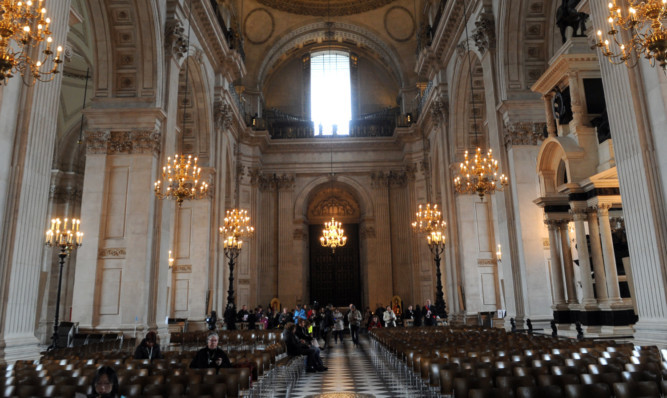Details of more than 2,000 guests being invited to Baroness Thatcher’s funeral were issued.
Fresh information about the ceremony at St Paul’s Cathedral was released as Lady Thatcher’s old political adversary Lord Kinnock revealed he would not be attending.
Ex-Soviet leader Mikhail Gorbachev and former US first lady Nancy Reagan have also said health problems will keep them away.
Number 10 said the guest list had been drawn up by Lady Thatcher’s family and representatives with the assistance of the Government and the Conservative Party.
A spokeswoman said: “In agreement with Lady Thatcher’s representatives, around 200 states, territories and international organisations are being invited to send an official representative to the funeral service.
“We have invited those countries and institutions with whom we have normal diplomatic relations. In addition, there are invitations being made in a personal capacity to some current and former world leaders as well as others from overseas who had a close connection to Baroness Thatcher.”
According to Downing Street, confirmed guests so far include Sir John Major, Tony Blair and wife Cherie, Gordon Brown, Canadian Prime Minister Stephen Harper, former South Africa leader FW de Klerk, and novelist Lord Jeffrey Archer.
Downing Street released the names of other guests who are expected to attend Lady Thatcher’s funeral.
Alex Salmond, the First Minister of Scotland, is expected to attend, along with the First Minister of Wales, Carwyn Jones, and the First Minister of Northern Ireland, Peter Robinson.
Singer Dame Shirley Bassey, composer Lord Lloyd-Webber and broadcaster Sir Terry Wogan are also due to attend.
Leading figures from the world of literature and showbusiness are also expected, including authors Joan Collins and Sir Tim Rice, and broadcasters Sir David Frost and Sir Trevor McDonald.
Designer Anya Hindmarch has been invited, as well as the Archbishop of York, Dr John Sentamu, and actress June Whitfield.
Number 10 said Falklands veterans would also be invited, as well as Mark Cann, director of the British Forces Foundation.
Meanwhile, David Cameron has described some reaction to Lady Thatcher’s death as “pretty distasteful”.
He said he thought the majority of national feeling was to grieve for the loss of a great leader, but conceded sections of society did not agree.
Mr Cameron also defended the decision to recall Parliament, even though MPs were due to return to Westminster until Monday.
Asked about reports that the speaker John Bercow had been taken aback by the request to bring back MPs, he said: “The request was made and the speaker granted it and that’s why Parliament was recalled.”
